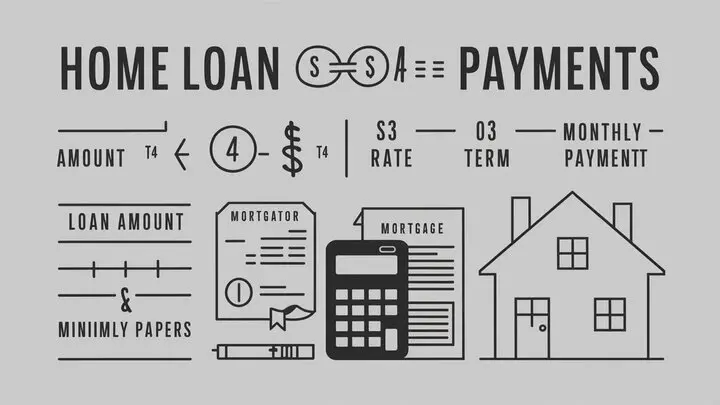-
Posted on: 23 Aug 2024

-
Applying for a Home Equity Loan: A Step-by-Step Guide
Intro For homeowners who have accumulated home equity, borrowing against this amount is a great way to get cash for any purpose, including remodeling, paying credit card or other debts, purchasing something big, education, healthcare, or other expenditures. An important way of tapping into home equity is through a home equity loan. Below is a detailed procedure on how to apply for a home equity loan.
Determine If You Qualify Before you proceed with the application for this type of loan you need to be sure that you meet the requirements for a home equity loan. Lenders typically have the following basic eligibility criteria:
-
You must own your home. The home is security for the loan so you have to have some equity in the house.
-
It is recommended that the loan-to-value ratio should not exceed eighty percent. This means that the amount of money you borrow for a mortgage and the home equity loan should not go beyond eighty percent of the total value of your home as per the appraisal.
-
It is also essential to have a good credit score, which is at least six hundred eighty. In general, a higher credit score leads to better loan terms.
- To secure a loan, you have to demonstrate that you have stable and sufficient income and employment that would enable you to repay the loan. Include recent pay stubs, tax returns, and bank statements.
Check Your Home Equity A home equity loan requires that you have equity in your home to access the loan. Home equity is the market value of a home, exclusive of liabilities secured by the house. For instance, if your home is worth two hundred thousand dollars and you have a mortgage of one hundred and fifty thousand dollars, your equity is fifty thousand dollars. This is not good news for those who are seeking a loan because lenders require significant equity to grant credit. It is also possible to use online tools to check your equity.
Research Lenders Expend time in searching for the available options in lenders. In the current market, home equity loans and lines of credit are provided by banks, credit unions, and online lenders. You need to compare the interest rates, estimated closing costs, loan terms, borrowing limits, and the eligibility criteria of at least three top choices. On this basis, one should pay attention to such aspects as the interest rates offered by the lender and the reviews of customers.
Gather Required Documents Be prepared to supply documentation to verify your finances, home value, and eligibility when applying for a home equity loan:
-
Employment records, which prove the individual’s current salary
-
W-two tax forms or two years of tax returns
-
Bank and investment statements.
-
Your most current mortgage statement
-
Deed if available I will attach a copy of the deed if it is available to me
-
Any of the documents specifically relating to home improvement or enhancement works.
- Personal information regarding your homeowner's insurance
Complete the Loan Application After you have your documents ready, search for a lender and apply for pre-approval. This involves:
-
Your comprehensive application includes personal, employment, and financial data forms. Most of them can be filed online.
-
Application fees usually range from twenty-five dollars to one hundred dollars whenever one is applying for a job.
-
Arrange any needed appraisals if your lender doesn’t do so. Appraisals set the value of your home when you begin the process of finding your dream house. It will cost roughly four hundred dollars to complete.
- Submitting all documents that your lender may require from you. Answer any other questions or additional information promptly.
This may take a few weeks depending on the lending company and it is known as preapproval. It helps you know whether or not you are eligible for the loan before you apply for it.
Nearly on Home Equity Loan With preapproval secured, you can move forward with finalizing the home equity loan:
-
Do not forget that it is always wise to read the terms, rates, and closing costs provided in the loan offer carefully. Always clarify with your lender if there is anything you do not understand.
-
Your lender will schedule a time, called a closing, at which you will receive your final loan documents and Truth-In-Lending statement.
- At the closing date, your lender will transfer the cash to any account that you specify, less the lender’s fees and closing costs.
You should assume closing will generally take between two to six weeks from the time you submit your application. This varies depending on where you live and the lender; the loan amount ranges from two thousand dollars to more than four thousand dollars.
Home Equity Loan Tips: Money Should Be Wisely Spent That means when you now have access to the funds from your new home equity loan, use them properly. Do not borrow more than required or possible to repay with interest and within the set time of borrowing. Ensure that you make timely payments to your loan in the future to avoid defaulting and thus losing your home. Track your home value and balance in order not to get to the eighties percent of the loan-to-value ratio in the future.
Getting a home equity loan or home equity line of credit is likely one of the cheapest ways to access your home’s equity. Such an approach to applying for a loan is relevant because it allows for avoiding getting a loan with unfavorable terms from a scamming company. It’s not a bad idea to do your research and ensure that you are aware of the potential costs, risks, and responsibilities that are associated with the contract.
Your dream home or car is within reach—call (888) 803-7889 for credit repair!
-










